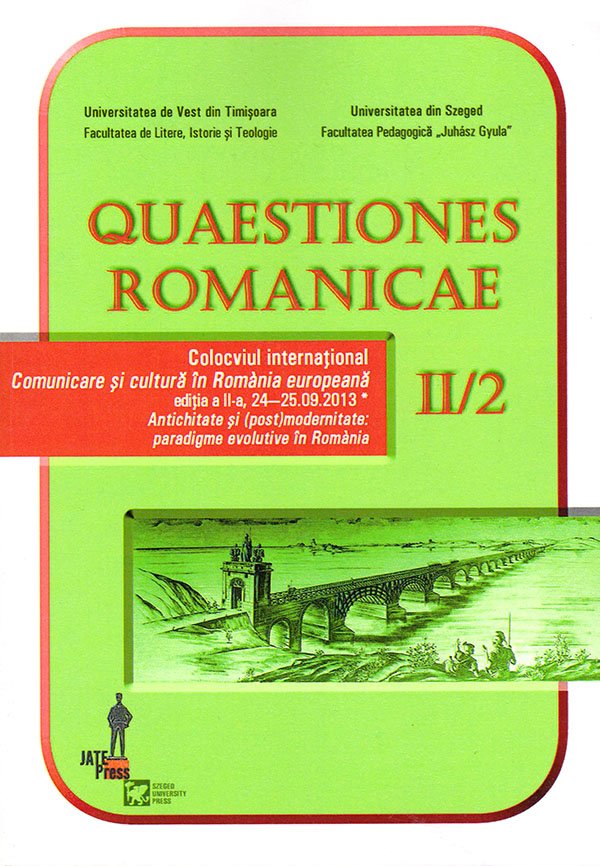Interjecţiile Hercle, Edepol, Ecastor şi funcţiile lor pragmatice la Plaut şi Terenţiu
Abstract: (The Interjections Hercle, Edepol, Ecastor and Their Pragmatic Functions In Plautus and Terence) Hercle, edepol, ecastor and their variants originally are oaths and invocation formulas of the gods Hercules, Pollux and Castor. From the grammatical point of view they are interjections, namely secondary interjections (Ameka 1992). This article firstly intends to give a brief overview of how the concept of interjection was developed in ancient Latin grammars and secondly to analyse the pragmatic functions of these interjectional formulas in the corpus represented by Plautus’ twenty plays and Terence’s six plays. The analysis is primarily based on Caroline Kroon’s (1998) theoretical framework for the description of Latin discourse markers. In certain contexts Hercle, Edepol, Ecastor function as parallel discourse markers (Norrick 2009) or intensifiers of other discourse markers such as certe, sane, profecto, enim, uero, enim uero, at etc. The excerpts analysed within the article represent the interactional level of the discourse specific to dramatic texts.
Keywords: interjections, Plautus, Terence, hercle, edepol, ecastor, pragmatic markers.
Rezumat: Hercle, Edepol, Ecastor şi variantele lor sunt la origine jurăminte şi formule de invocare a divinităţilor Hercule, Pollux şi Castor. Din punct de vedere gramatical, sunt interjecţii şi anume interjecţii secundare (Ameka 1992). Acest articol intenţionează să ofere mai întâi o scurtă trecere în revistă a felului în care s-a dezvoltat conceptul de interjecţie în vechile gramatici latineşti şi apoi să analizeze funcţiile pragmatice ale acestor formule interjective în corpusul reprezentat de cele douăzeci de piese ale lui Plaut şi cele şase ale lui Terenţiu. Analiza este bazată în principal pe cadrul teoretic pentru descrierea marcatorilor de discurs din latină al Carolinei Kroon (1998). În anumite contexte, Hercle, Edepol, Ecastor funcţionează ca marcatori de discurs paraleli ori intensificatori ai altor marcatori de discurs precum certe, sane, profecto, enim, uero, enim uero, at etc (Norrick 2009). Fragmentele analizate în cadrul articolului reprezintă nivelul interacţional de discurs specific textelor dramatice.
Cuvinte-cheie: interjecţii, Plaut, Terenţiu, hercle, edepol, ecastor, marcatori pragmatici.
